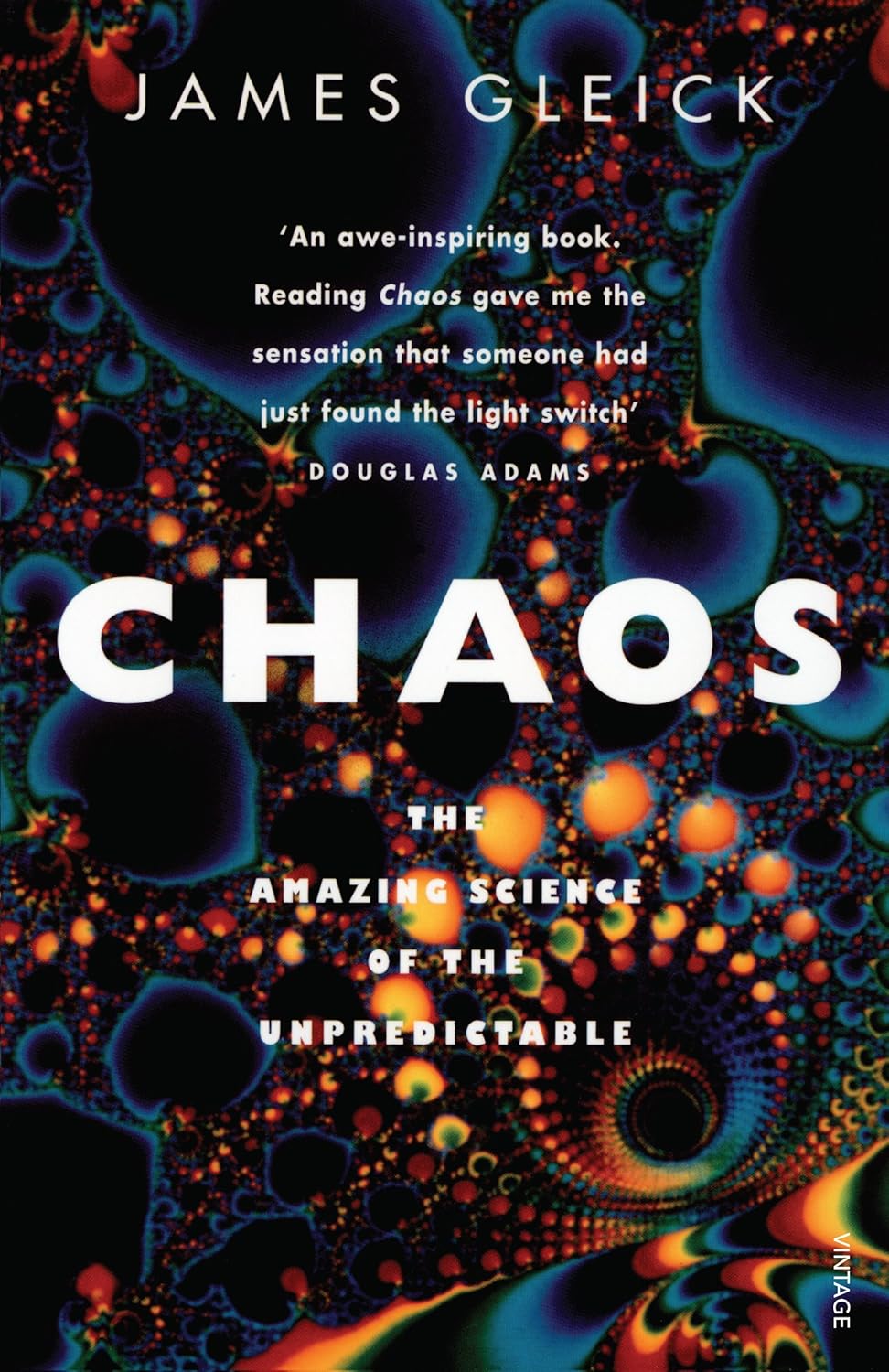About this deal
it struck me as an operational way to define free will, in a way that allowed you to reconcile free will with determinism. I know that most men, including those at ease with problems of the greatest complexity, can seldom accept even the simplest and most obvious truth if it be such as would oblige them to admit the falsity of conclusions which they have delighted in explaining to colleagues, which they have proudly taught to others, and which they have woven, thread by thread, into the fabric of their lives. But he decided to start in the middle of the simulation, typing in the numbers from the previous printout by hand. He is the author of Chaos: Making a New Science, which was a Pulitzer Prize and National Book Award finalist in 1987, and T he Information: A History, a Theory, a Flood, which won the Royal Society's Winton Prize for Science and PEN's Hessell-Tiltman History Prize in 2012, among several others.
The Information is by no means an easy read, but if you have some previous knowledge of physics(mine came from having read Brian Greene's Fabric of the Cosmos: Space, Time and the Texture of something or other and a biography of e = mc2 but I suspect a bit of patience and wikipedia would also be just fine), you should be able to get through this without any major confusion. Creating a few millidegrees of difference in temperature between the plates led the helium to start moving. That is an interesting concept, but it actually has little to do with "information" as treated in the rest of the book: alphabets, calculators, cyphers, telegraphs, genes, Wikipedia articles. The paradox is that although nonlinearity is almost the standard form in which Nature manifests itself to us, the entire tradition of Science, is based on transforming nonlinear systems to linear ones, creating an arsenal of mathematical tricks to do that, even worse, these complexities are viewed as ‘noises’, ‘irregularities’, something which ideally should not be there in the first place.Chaos explores the history of this new science, revealing its startling findings, and pondering its implications.
In the end, this was definitely a very light and fun read and that is quit the reason it is so popular. If you are still wondering how to get free PDF EPUB of book Chaos: Making a New Science by James Gleick. It's highly addictive to get core insights on personally relevant topics without repetition or triviality. In an apparent coincidence, a small number of unrelated people became interested in studying aperiodic, non-linear problems arising in various fields of science all at roughly the same time. Thus I was disappointed that the focus was on a sequence of semi-biographies of the scientists as they discovered aspects of chaos.He wrote the "Fast Forward" column in the New York Times Magazine from 1995 to 1999, and his essays charting the growth of the Internet formed the basis of his book What Just Happened. Here is a quick description and cover image of book Chaos: Making a New Science written by James Gleick which was published in 1987-10-29. If I had the time, I'd like to run the calculations myself, as they seem within the reach of anyone with a laptop. Since we today generally take for granted a certain relationship between information, our minds, and our instruments, it is a major accomplishment that Gleick gets us to note that we haven't always lived this way and to think through how we got this way.
Not to mention galaxy formation, fingerprints, shells, coastlines, or the thing that made the little dinos get the upper hand in those movies. The story of information begins in a time profoundly unlike our own, when every thought and utterance vanishes as soon as it is born. Now that these kind of doing science was quit established, other disciplines began to join the league, looking for solutions to problems which they previously lacked the adequate tools. In Chaos, Gleick makes the story of chaos theory not only fascinating but also accessible to beginners, and opens our eyes to a surprising new view of the universe. Even when healthy and at peace, Feigenbaum subsisted exclusively on the reddest possible meat, coffee, and red wine.The book is hugely popular, always comes at first when you are looking for recommendations about chaos theory books. Gleick ends up noting that the demon could not operate, but then he keeps referring to it as if it really does operate, a (presumably) rhetorical move that is pointless and incoherent. I also didn't care for the tone of the brief profiles of the various physicists and mathematicians - it felt like name-dropping to me. Gleick makes heroes out of Mandelbrot Benoît and the others and weaves an otherworldly charm around their ideas. From the invention of scripts and alphabets to the long-misunderstood talking drums of Africa, Gleick tells the story of information technologies that changed the very nature of human consciousness.
From Edward Lorenz’s discovery of the Butterfly Effect, to Mitchell Feigenbaum’s calculation of a universal constant, to Benoit Mandelbrot’s concept of fractals, which created a new geometry of nature, Gleick’s engaging narrative focuses on the key figures whose genius converged to chart an innovative direction for science.
Its absurdity is precisely the problem that arises when Gleick conflates his two kinds of information. It was sprawling, and attempts at unification (aside from leading Gleick to embrace absurdities and forget what information even is) fell flat. In all these contexts, something is informational when one physical object stands in for something else -- say, AAG for lysine, or dot-dot-dot for s.
 Great Deal
Great Deal 